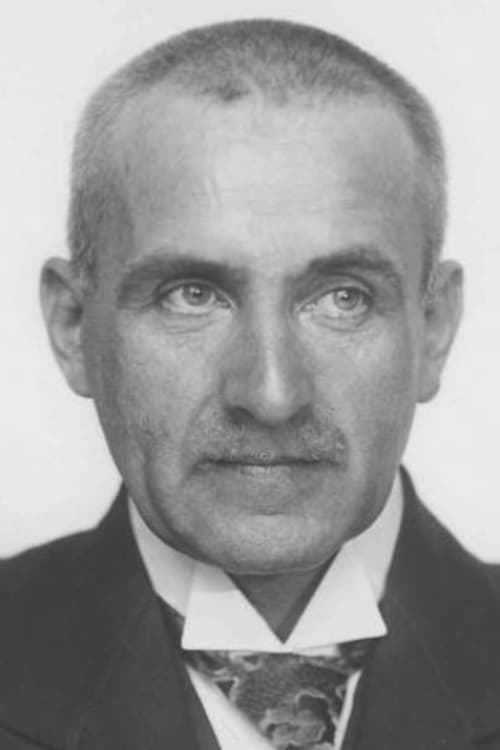Frank Wedekind
Birth : 1864-07-24, Hannover, Germany
Death : 1918-03-09
History
Benjamin Franklin Wedekind, usually known as Frank Wedekind, was a German playwright, author and chansonnier. His work, which often criticizes bourgeois attitudes, particularly towards sex, is considered to anticipate expressionism and was influential in the development of epic theatre.
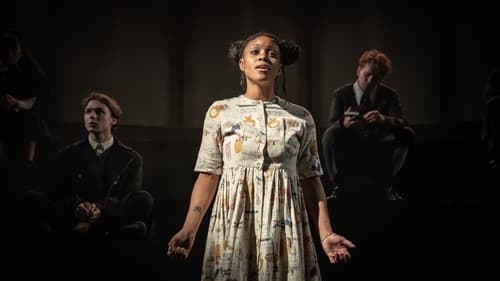
Original Concept
A group of late 19th century German teenagers – silenced and controlled by a censorious society – discover a new world of feeling and freedom outside the classroom, with beautiful and devastating consequences.

Writer
The tale of teenagers growing up in an oppressed society, finding ways to fight back and discovering as individuals who they truly are.

Original Story
William Kentridge’s multi-layered production of Berg’s masterpiece stars charismatic soprano Marlis Petersen in the title role—the enigmatic and alluring woman who is equal parts femme fatale, innocent girl, and abused victim. The men around her, whose lives she forever alters, are Johan Reuter as newspaper publisher Dr. Schön; Daniel Brenna as his composer son, Alwa; Paul Groves as the Painter; and Franz Grundheber as Schigolch. Susan Graham sings Countess Geschwitz, and Lothar Koenigs conducts Berg’s landmark score.

Screenstory
A performance of Alban Berg's opera recorded at the Schiller Theater in Berlin. The opera, dark and satirical in tone, charts the story of the rise and fall of a femme fatale, from life as a society hostess to prostitution and, eventually, a bloody death at the hands of Jack the Ripper.
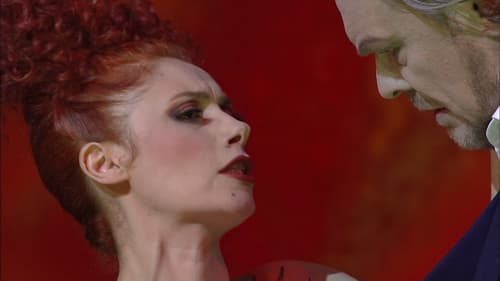
Original Story
Live performance of Alban Berg's opera at the Gran Teatre del Liceu, Barcelona. Inspired by "Pandora's Box" by Frank Wedekind, Lulu describes the social ascent and the demise of a deadly woman, driven by men to behave in murder, to her own. dead.
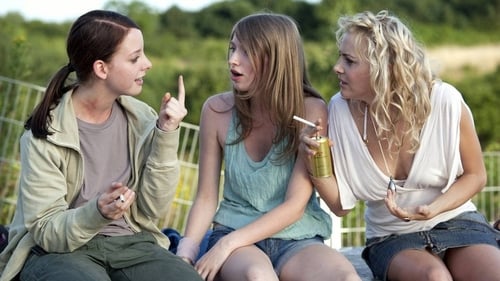
Theatre Play
Young adults growing up in an oppressed society, finding ways to fight back and discovering as individuals who they truly are.

Original Story
New peoduction, 2009. Filmed by the Royal Opera House in co-production with Opus Arte, June 13/17.

Screenplay

Writer
A group of young girls are brought up in a college within dark forests and gloomy lakes. Young Hidalla and her friends Irene, Vera, Blanka, Melusine and Rain are brought up in an isolated world: the girls don't know anything about live outside the college's high walls. At the age of 16, some of them start asking questions about their origins, their parents and the true purposes of the Headmistresses strict rules. When two of them disappear mysteriously, the initial fairytale atmosphere grows more and more eerie...
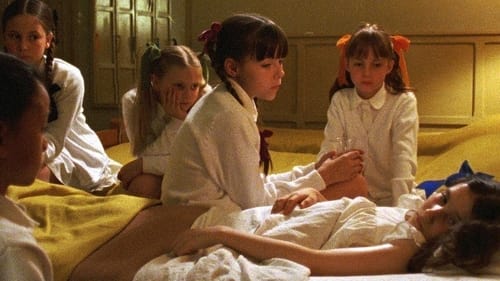
Novel
At an unusual private school for girls, new students, including young Iris, show up in coffins. The establishment's teachers, Mademoiselle Eva and Mademoiselle Edith, introduce Iris and her fellow pupils to the school's curriculum, which includes fairy-like dances through a nearby forest. When night falls, the older girls, who are on the threshold of womanhood, are then given mysterious, life-changing lessons.

Writer
Since its premiere on 2 June 1937 in Zurich, Alban Berg's second opera "Lulu" has the reputation of being surrounded by scandals. On the one hand, this is due to the dubious character of the subject, the man-eating femme fatale, which Berg had taken from Frank Wedekind's two Lulu tragedies – "The Earth Spirit" and "Pandora's Box" – and combined into one opera libretto. On the other hand, Berg's window had (for personal reasons) repeatedly refused to have the opera completed, which was unfinished when Berg died. This video is of the unfinished two-act torso of "Lulu."

Original Story
Alban Berg's black, satirical opera is one of the masterpieces of the 20th Century. It charts the rise and fall of a femme fatale "created to make trouble", from life as a society hostess to prostitution and eventual bloody death at the hands of Jack the Ripper. Berg's score is intensely beautiful, and the rich characterisation brilliantly executed.

Screenplay

Writer
Peter Zadek's 1988 production with Susanne Lothar, recorded at the Ruhrfestspiele Recklinghausen in 1991.

Writer
Lulu models for a young painter who tries to seduce her. When her husband enters the room he dies from a heart attack. Lulu marries the painter, who commits suicide when he finds out that she has been having a long standing affair with Dr Schon and whose son gives her a job. Lulu kills Dr Schon and goes to London to live with his son. Eventually, she becomes a prostitute and dies a victim of Jack the Ripper.

Writer
This highly stylized, critically acclaimed film from the 70's mixes silent film cards, a soundscape, color, opera music and atmosphere to explore the Freudian truths about men's fear of women that Wedekind powerfully exposed. A kinetic melodrama of the rise of a femme-fatale and her fate at the hands of Jack-the-Ripper. Rethinking Pabst's silent film and Alban Berg's opera.

Theatre Play
Evolves around the rooms of a house as one of the main characters, Lisiska, is waiting and is studied in depth as she prepares herself for a meeting. The film attempts to display sexual barriers and misconceptions, and about the role-playing and the confusion around the whole question of sexual and sensual involvement. The essence is the confrontation with self-deception, lies and the real fear of contact with both sexes.
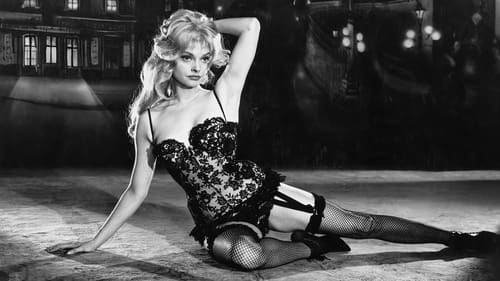
Writer
A 14-year-old girl is caught while trying to pick a doctor's pocket. The doctor ends up taking her in and turning her into a sophisticated lady, whom he marries off to a wealthy man.

Writer
Munich in the summer of 1899. In his insatiable greed for money, influence and enjoyment of life, the Marquis von Keith defies any moral law. Two women are obedient to him.
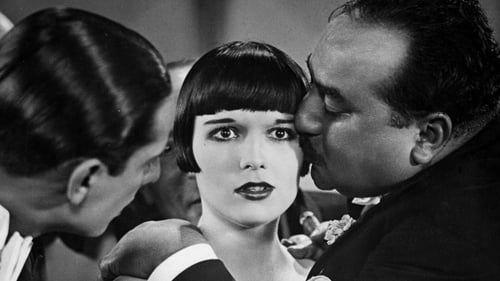
Writer
Lulu is a young woman so beautiful and alluring that few can resist her siren charms. The men drawn into her web include respectable newspaper publisher Dr. Ludwig Schön, his musical producer son Alwa, circus performer Rodrigo Quast, and seedy old Schigolch. When Lulu's charms inevitably lead to tragedy, the downward spiral encompasses them all.

Theatre Play
Moritz Stiefel faces expulsion due to poor marks. When he is caught with an essay titled “Shame and Lust”, he is indeed kicked out – instead of classmate Melchior Gabor, who actually penned it. Gabor was drawing on his experiences with neighbourhood girl Wendla. Then Wendla turns up pregnant. Stiefel descends into despair ... Exploitation between Eros and Thanatos in this “sexual tragedy of youth” based on Frank Wedekind’s play. Setting the film in the 1920s provided a chance to explore “modern” youth culture, complete with cigarettes, jazz music, the gramophone, and a goodly bit of alcohol. Richard Oswald, a master of films of manners and young sex beginning in the 1910s, fully explores the temptations of the youthful body, even early childhood flirtatiousness. At the same time, with his target audience in mind, the film laments the bigotry and double standards of the adult world.

Theatre Play
Based on the play of the same name by Frank Wedekind.

Writer
Dr. Schön marries a lower class girl, Lulu. Young and voluptuous she attracts the attention of the all the male gender, but the doctor will not let her go.

Theatre Play
Based on the play Der Erdgeist by Frank Wedekind.

Theatre Play
King Nicolo through hit egoism and slackness has lost his fame and power is now deposed, completely alone and walks through his former empire, unrecognized, in constant fear of people whom are foreign to him.

Theatre Play
Based on the play of the same name by Frank Wedekind.

Writer
The circus dancer Lulu is a thoroughly liberal being. Although she loves her former savior, the clown Alfredo, she begins a relationship with the noble Henri von Reithofen. Henri kills himself ruined by the horrendous expenses for Lulu. She however is fishing for the next rich patron, the much older Baron Waldheim. His son knows Lulu and warns his father that she will also hurt him. Waldheim succumbs to Lulus's insinuations and punishes his son.
